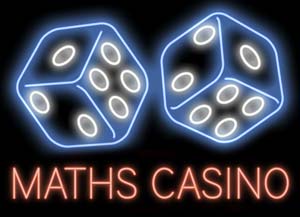Plus Advent Calendar Door #16: Let's play a game...

You've opened all your presents, you've eaten till you're ready to burst, you're sick of the holiday specials on TV. Let's play a game!
Curious dice
In this article we present a set of unusual dice and a two-player game in which you will always have the advantage.
Games people play
Mathematicians love games. Not only can they have fun while looking like they're busy working, but even the simplest games can demand clever tactics and strategies to win.
Practice makes perfect
Although it may be inevitable that computers will become unbeatable in the near future, human Grandmasters are still holding their own against the machines today. How is it, then, that the human brain, with a mere fraction of a computer's number-crunching ability, is still able to put up a good fight?
Let 'em roll
This article was the winner of the schools category of the Plus new writers award in 2006. Dice are invaluable to many games, especially gambling games, but instead of playing with ordinary 1-6 numbered dice here are two interesting alternatives — with a twist!
And don't forget, you can also read all about how game theory can be used for more than just fun. Good luck!